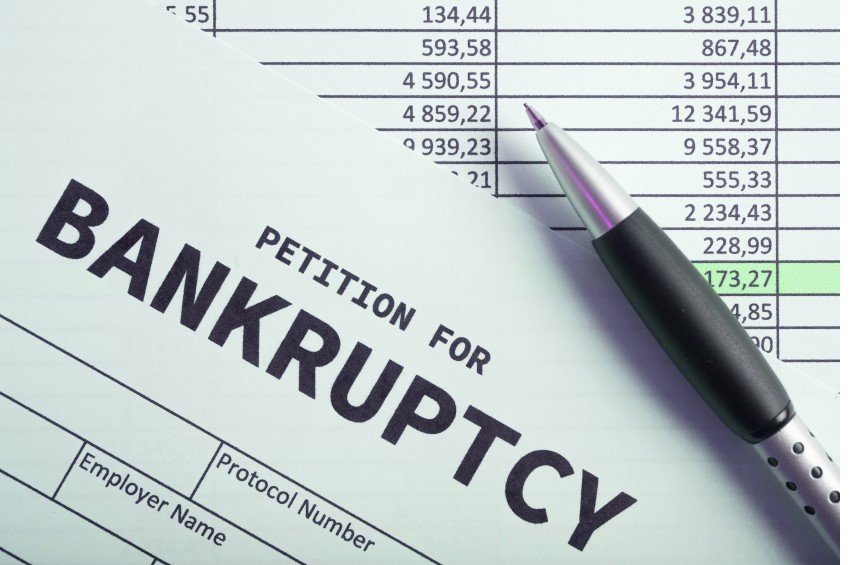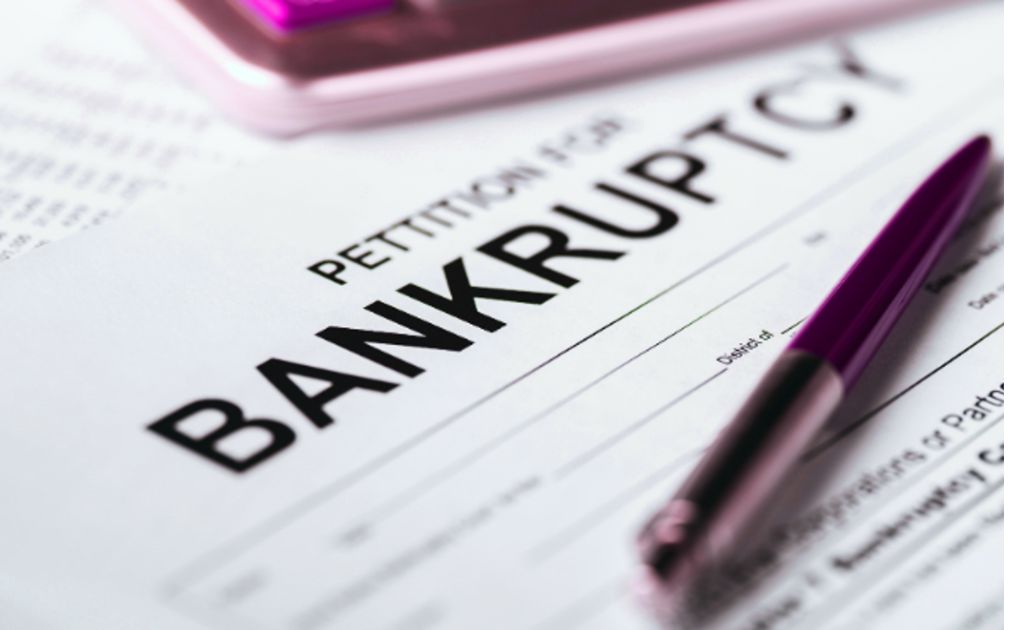Bankruptcy Basics: Know Your Rights and Responsibilities

Navigating the complexities of Bankruptcy Basics, but understanding your rights and responsibilities is crucial for anyone considering this financial option. Bankruptcy provides a legal framework for individuals and businesses to address overwhelming debt and obtain relief from creditor actions. By knowing the basics of bankruptcy, you can make informed decisions about your financial future and take control of your debt. In this guide, we’ll explore the fundamental aspects of bankruptcy, from eligibility criteria and types of bankruptcy filings to the impact on your credit score and alternatives to bankruptcy. Whether you’re facing financial difficulties or seeking to learn more about bankruptcy, this guide will equip you with the knowledge needed to navigate the bankruptcy process with confidence.
Contents
- 1 What is bankruptcy?
- 2 Why does bankruptcy exist?
- 3 Types of Bankruptcy
- 4 Eligibility Criteria
- 5 Filing for Bankruptcy
- 6 Automatic Stay
- 7 The Bankruptcy Process
- 8 Impact on Credit Score
- 9 Assets and Exemptions
- 10 Debts Discharged in Bankruptcy
- 11 Bankruptcy Fraud
- 12 Alternatives to Bankruptcy
- 13 Personal Bankruptcy vs. Business Bankruptcy
- 14 Legal Rights and Responsibilities
- 15 Financial Counseling
- 16 Conclusion
- 17 FAQs(Bankruptcy Basics: Know Your Rights and Responsibilities)
What is bankruptcy?
Bankruptcy is a legal process designed to provide relief to individuals and businesses who are unable to meet their financial obligations. It allows debtors to either eliminate their debts or restructure them under the supervision of a bankruptcy court.
Why does bankruptcy exist?
Bankruptcy exists to offer a fresh start to individuals and businesses overwhelmed by debt. It provides a structured process for debtors to address their financial difficulties while ensuring fair treatment of creditors.
Types of Bankruptcy
Bankruptcy in the United States is primarily governed by the Bankruptcy Code, which offers several types of bankruptcy filings:
Chapter 7
Chapter 7 bankruptcy, also known as liquidation bankruptcy, involves the sale of a debtor’s non-exempt assets to repay creditors. It is typically available to individuals with limited income who cannot afford to repay their debts.
Chapter 13
Chapter 13 bankruptcy, also known as reorganization bankruptcy, allows debtors to develop a repayment plan to restructure their debts over three to five years. It is available to individuals with a regular income who can afford to repay a portion of their debts.
Chapter 11
Chapter 11 bankruptcy is primarily designed for businesses seeking to reorganize their debts and continue operating. It allows businesses to develop a plan to repay creditors while remaining in business and retaining control over their assets.
Eligibility Criteria
Before filing for bankruptcy, debtors must meet certain eligibility criteria:
Means test
The means test evaluates a debtor’s income and expenses to determine if they qualify for Chapter 7 bankruptcy. It compares the debtor’s income to the median income in their state and assesses their ability to repay debts.
Credit counseling
Debtors are required to undergo credit counseling from an approved agency within six months before filing for bankruptcy. The counseling helps debtors understand their options and develop a plan for managing their finances.
Filing for Bankruptcy
Filing for bankruptcy involves several steps:
Hiring an attorney
While not required, hiring an experienced bankruptcy attorney can help debtors navigate the complexities of the bankruptcy process and ensure their rights are protected.
Filing fees
Debtors must pay filing fees to initiate bankruptcy proceedings, which vary depending on the type of bankruptcy filing and the jurisdiction.
Automatic Stay
One of the immediate benefits of filing for bankruptcy is the automatic stay:
Protection from creditors
The automatic stay prohibits creditors from pursuing collection activities, such as foreclosure, repossession, wage garnishment, or lawsuits, against the debtor while the bankruptcy case is pending.
Exceptions
Certain actions, such as child support and alimony payments, criminal proceedings, and certain tax liabilities, are not subject to the automatic stay.
The Bankruptcy Process
The bankruptcy process involves several key stages:
Meeting of creditors
Shortly after filing for bankruptcy, debtors are required to attend a meeting of creditors, where they may be questioned by the bankruptcy trustee and creditors about their financial affairs.
Discharge of debts
If the bankruptcy court approves the debtor’s petition, eligible debts may be discharged, meaning the debtor is no longer legally obligated to repay them.
Read More: Bankruptcy and Your Future: Rebuilding Financial Stability
Impact on Credit Score
Bankruptcy has a significant impact on the debtor’s credit score and financial future:
Rebuilding credit
After bankruptcy, debtors can take steps to rebuild their credit by establishing a positive payment history, using secured credit cards, and seeking credit counseling.
Credit counseling requirements
Debtors are required to undergo credit counseling before filing for bankruptcy and complete a financial management course after filing to improve their financial literacy.
Assets and Exemptions
Bankruptcy law provides for certain exemptions:
Liquidation vs. reorganization
In Chapter 7 bankruptcy, non-exempt assets may be liquidated to repay creditors, while in Chapter 13 bankruptcy, debtors can retain their assets and develop a repayment plan.
Homestead exemption
Many states provide a homestead exemption that allows debtors to protect a certain amount of equity in their primary residence from being seized by creditors.
Debts Discharged in Bankruptcy
Not all debts are dischargeable in bankruptcy:
Unsecured vs. secured debts
Unsecured debts, such as credit card debt and medical bills, may be discharged in bankruptcy, while secured debts, such as mortgages and car loans, are typically unaffected.
Exceptions to discharge
Certain debts, such as student loans, child support, alimony, and certain tax debts, are generally not dischargeable in bankruptcy.
Bankruptcy Fraud
Bankruptcy fraud is a serious offense:
Consequences
Bankruptcy fraud can result in criminal charges, fines, and even imprisonment, in addition to the denial of discharge of debts.
Reporting fraudulent activity
Creditors, trustees, and other parties involved in the bankruptcy process must report suspected fraud to the appropriate authorities.
Alternatives to Bankruptcy
Alternatives to bankruptcy include:
Debt consolidation
Debt consolidation involves combining multiple debts into a single loan with a lower interest rate, making it easier for debtors to manage their payments.
Negotiating with creditors
Debtors can also negotiate with creditors to settle their debts for less than the full amount owed or arrange for more manageable payment plans.
Personal Bankruptcy vs. Business Bankruptcy
The process and implications of bankruptcy differ for individuals and businesses:
Key differences
Personal bankruptcy primarily involves liquidating assets or restructuring debts to obtain relief from overwhelming debt, while business bankruptcy focuses on reorganizing debts to continue operating.
Implications for individuals and businesses
Personal bankruptcy can have long-term consequences for an individual’s credit and financial future, while business bankruptcy can affect the viability and reputation of the business.
Legal Rights and Responsibilities
Debtors have certain legal rights and responsibilities throughout the bankruptcy process:
Rights of debtors
Debtors have the right to seek relief from overwhelming debt through bankruptcy and are protected from creditor harassment and unfair debt collection practices.
Responsibilities during bankruptcy proceedings
Debtors are required to cooperate with the bankruptcy trustee, attend required hearings, provide accurate financial information, and complete required credit counseling and financial management courses.
Financial Counseling
As part of the bankruptcy process, debtors are required to undergo financial counseling:
Mandatory counseling sessions
Debtors must complete credit counseling from an approved agency before filing for bankruptcy and participate in a financial management course after filing.
Budgeting advice
Financial counseling provides debtors with budgeting advice, debt management strategies, and resources to improve their financial literacy and stability.
Read More: Debt Management Solutions: Breaking the Cycle of Financial Strain
Conclusion
Bankruptcy can be a valuable tool for individuals and businesses struggling with overwhelming debt, providing a fresh start and relief from creditor actions. However, it is essential to understand the rights and responsibilities involved in the bankruptcy process and explore alternatives before filing. By seeking legal advice and financial counseling, debtors can make informed decisions to improve their financial future.
FAQs(Bankruptcy Basics: Know Your Rights and Responsibilities)
Can I file for bankruptcy without an attorney?
While it is possible to file for bankruptcy without an attorney, it is not recommended due to the complex nature of the process and the potential consequences of mistakes or omissions.
How long does bankruptcy stay on my credit report?
Bankruptcy can stay on your credit report for up to ten years, depending on the type of bankruptcy filing.
Will I lose all my assets if I file for bankruptcy?
Not necessarily. Bankruptcy law provides for certain exemptions that allow debtors to protect certain assets from being liquidated to repay creditors.
Can I discharge all my debts in bankruptcy?
While many debts can be discharged in bankruptcy, certain types of debts, such as student loans, child support, alimony, and certain tax debts, are generally not dischargeable.
What are the alternatives to bankruptcy?
Alternatives to bankruptcy include debt consolidation, negotiating with creditors, and seeking credit counseling to manage debt effectively.





